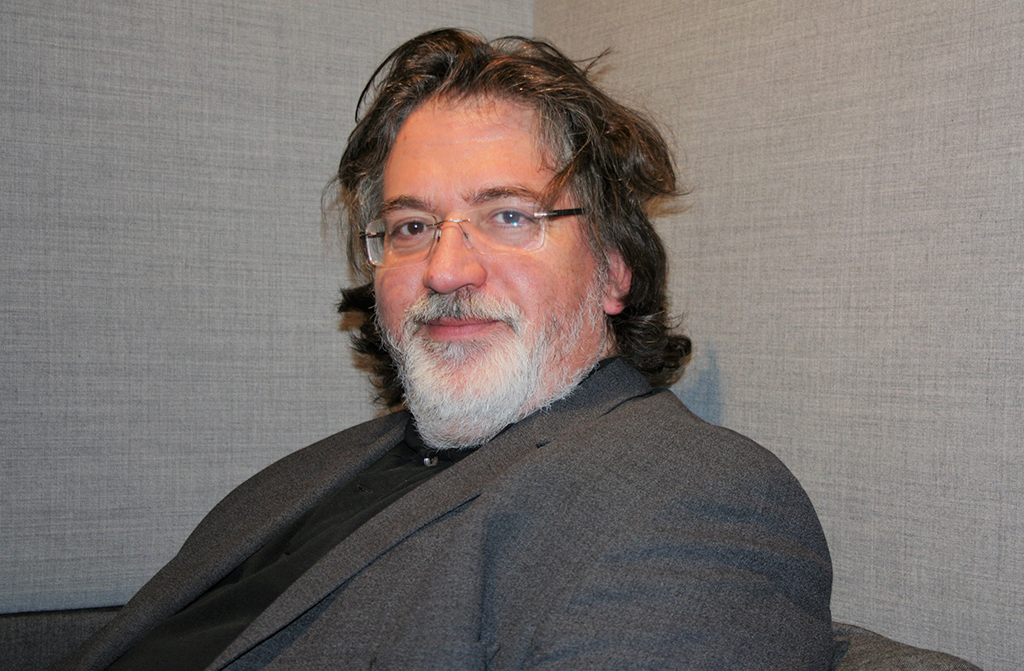"The education system is missing a very big opportunity by not including more music"

Manel Valdivieso , conductor of the National Youth Orchestra of Catalonia
Since 2001, Manel Valdivieso has been conducting the National Youth Orchestra of Catalonia (JONC), which is not a professional orchestra and is not a part of any formal higher music education. It occupies a different sphere but is related to all the others: it enables the most talented young musicians in Catalonia to train for a time with internationally renowned teachers. Fifteen years ago, a maximum of 200 people per year took the entrance exams. Today, it’s around 600. Valdivieso, who has conducted Spain’s major orchestras and has worked in the international field, talked about leadership at the seminar Professionals competents per a organitzacions intel·ligents (Competent professionals for smart organizations), organized by UOC Corporate.
Since 2001, Manel Valdivieso has been conducting the National Youth Orchestra of Catalonia (JONC), which is not a professional orchestra and is not a part of any formal higher music education. It occupies a different sphere but is related to all the others: it enables the most talented young musicians in Catalonia to train for a time with internationally renowned teachers. Fifteen years ago, a maximum of 200 people per year took the entrance exams. Today, it’s around 600. Valdivieso, who has conducted Spain’s major orchestras and has worked in the international field, talked about leadership at the seminar Professionals competents per a organitzacions intel·ligents (Competent professionals for smart organizations), organized by UOC Corporate.
When you took the reins of the JONC you said the orchestra wanted to revolutionize itself. How is it doing this?
How did you discover this passion?
How were you influenced, at a very young age, by your time studying at the Escolania de Montserrat?
The most extraordinary thing was that you learned fundamentals that you were not aware of until much later.
A very organic way of learning.
I remember that after studying at the Escolania I went to a conservatoire and we did two-voice musical dictation. They played it 16 or 20 times. I completed the dictation the first time and it scared me. I had learnt without knowing how, by osmosis. I think it’s magical.
What have you learnt from being a leader?
Two very important things: first, how to listen and not from a position of superiority; and second, how to be patient with things that I consider urgent.
As an orchestra conductor, you are used to leading the best. What does this involve?
You shouldn’t pull so much but rather lead. You have to get them to want to do what you believe is best for them but not for them to obey you. Sounds good, doesn’t it?
We are at a meeting organized by the UOC and talking about work and training. How does the education system treat musicians today?
The education system is missing a very big opportunity by not including music more, by not exploiting the multiple talents. In the classroom, all students must learn the same thing at the same pace. This does not produce the best results possible because everyone learns at their own pace. Is it ok to have common ground? Perhaps so. But there are certain disciplines that are not so much concerned with the things we learn but how these things affect our environment. For example, strategy. As for music, imagine that everybody knew how to listen...
...without thinking about what to say after the other speaks.
To really listen. The difference this makes to people's training is so huge that not making the most of it means missing an opportunity. That said, the system has evolved and is evolving well. But I believe that it misses a great opportunity when it doesn't focus on the different talents: spatial, strategic, patience, listening to oneself... None of these things will make you worse at anything and, in contrast, they will all make you better at everything. No question in my mind.
And the role of the university?
The higher music schools have university status but when you enter university you should have learnt this. It is better to learn it as a child.
Why is it so hard for classical music to reach people?
Hmmm... [laughs] ...Perhaps because it is less immediate.
And the world moves very fast.
Pop music, or even a singer-songwriter, is more superficial. Classical music is a more sophisticated, more evolved language. It is bound to be a little harder. But it is not an impossible language. We receive similar sensorial impressions: if you and I sit down to listen to Beethoven's Fifth Symphony, perhaps we will not think the same thing, but you certainly won't think about butterflies or roses because there's strength, determination and decision in what you hear. We will receive sensations and experience similar emotions. There is a kind of message that is univocal in classical music, but not in a superficial way.
Is the JONC working to reach more people?
To delve deeper?
If you can, the effect is much better.
Today, we need this more than ever...
Yes, it would always do us good.
Press contact
-
Editorial department
